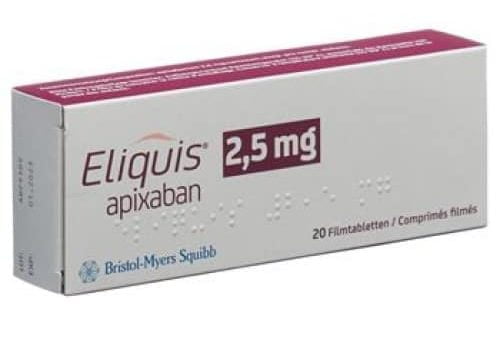Brilinta and Eliquis are both anticoagulants, commonly referred to as blood thinners. Brilinta is usually prescribed to reduce mortality related to cardiovascular events, such as heart attacks, in patients with acute coronary syndromes (ACS). On the other hand, Eliquis is intended to lower the risk of systemic embolism and stroke in patients suffering from nonvalvular atrial fibrillation.
What is Brilinta?
Brilinta is designed for individuals who have had a significant cardiac event. Research has demonstrated that Brilinta substantially decreases the risk of a subsequent heart attack. When used in combination with aspirin, Brilinta helps to prevent platelets from clumping together and forming a new clot that could provoke another heart attack.
What is Eliquis?
Eliquis is an FDA-approved medication aimed at treating and preventing dangerous blood clots that can obstruct blood flow in your body. It is particularly used to prevent blood clots and strokes in people with nonvalvular atrial fibrillation and to treat deep vein thrombosis (DVT) and pulmonary embolism (PE). Additionally, Eliquis helps prevent the recurrence of DVT and PE, especially in individuals who have undergone knee or hip replacement surgery.
What are the side effects of Brilinta and Eliquis?
The side effects of Brilinta and Eliquis are distinct from one another. Here are some of the common side effects associated with each anticoagulant:
Brilinta
Frequent side effects of Brilinta include increased bleeding, nosebleeds, and bruising. Other side effects may include:
- dizziness
- cough
- nausea
- diarrhea
- irregular heartbeat
- high or low blood pressure
- back pain
- fatigue
- chest pain
Eliquis
Common side effects of Eliquis include:
- skin rash
- allergic reactions
- fainting
- nausea
- anemia
What drugs interact with Brilinta and Eliquis?
Brilinta
Brilinta may interact with other blood thinners, HIV/AIDS medications, seizure drugs, and antifungals, among others. Additionally, it can interact with:
- dexamethasone (Decadron)
- digoxin (Lanoxin, Digitek, Digibind)
- nefazodone (Serzone)
- certain antibiotics
- cholesterol-lowering drugs (statins)
- heart or blood pressure medications
Eliquis
Eliquis may interact with heparin and other blood thinners, as well as the following medications:
- antibiotics
- antidepressants
- antifungals
- antithrombotics
- bone marrow stimulants
- bosentan
- conivaptan
- cyclosporine
- dextran
- heart or blood pressure medications
- hepatitis C medications
- HIV/AIDS medications
- imatinib
- isoniazid
- nefazodone
- nonsteroidal anti-inflammatory drugs (NSAIDs)
- rifabutin
- rifampin
- rifapentine
- salicylates (aspirin, Pepto-Bismol, etc.)
- seizure medications
- vasodilators
How to take Brilinta and Eliquis?
Brilinta
You can take Brilinta with or without food. Often, it is prescribed alongside aspirin, but the dosage and strength of aspirin should be discussed with your doctor. Consuming more than 100 mg of aspirin per day may decrease the effectiveness of Brilinta.
Important note: Avoid taking aspirin in amounts greater than your doctor’s recommendations. Inform your doctor if you are on any other aspirin-containing medications, and steer clear of new over-the-counter medicines that contain aspirin.
Eliquis
The typical dosage for Eliquis is 5 mg, taken orally twice daily. A lower dose of 2.5 mg twice daily may be prescribed for patients who meet at least two of the following criteria:
- age ≥ 80 years
- body weight ≤ 60 kg
- serum creatinine ≥ 1.5 mg/dL
